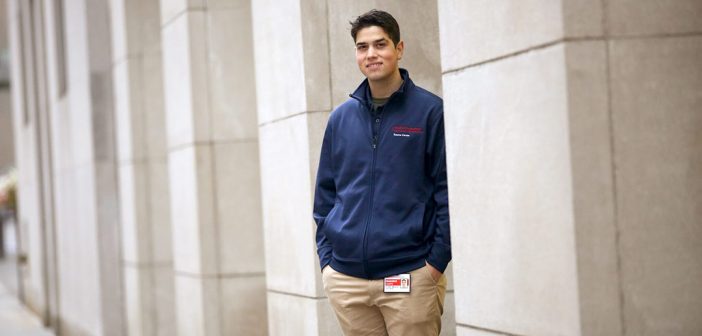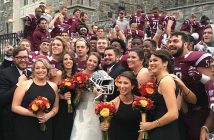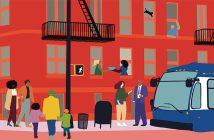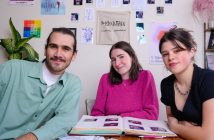But along the way, he made a deep foray into new technologies that could bring big changes to medicine as well as other aspects of daily life.
A New York City native, Ciuffo shadowed doctors in the city during freshman and sophomore year while also taking computer science courses. His major in computational neuroscience led him to Fordham’s Wireless Sensor Data Mining (WISDM) lab and the study of biometric data.
In the lab, students were exploring the use of smartphones and smartwatches for tracking a wide range of actions, from big movements like standing up and walking to small movements like noshing on potato chips. The devices’ sensors could record anyone’s “signature” way of moving with as much as 98 percent accuracy.
Ciuffo was fascinated. “Our brain-and-body connection is so unique, no matter what we’re doing,” he said.
At the suggestion of lab director Gary Weiss, Ph.D., Ciuffo decided to study something even smaller: the subtle wrist movements that we all make when writing. Other studies of people’s writing motions had relied on custom-made pens or keyboards, Ciuffo said, but he wanted to see what could be done with a wearable device.
With funding from a Fordham Undergraduate Research Grant, he had 24 people wear smartwatches containing gyroscopes and accelerometers while typing and writing by hand. “I didn’t know what to expect,” he said. “Even Gary Weiss was unsure if it was going to work.”
But it did work. The recorded patterns accurately identified the writer 94 to 98 percent of the time. Ciuffo and Weiss wrote up their findings and, in October, presented them at the 8th IEEE Ubiquitous Computing, Electronics and Mobile Communication Conference, held at Columbia University.
Ciuffo was one of the youngest people there. “I learned a lot of interesting things in the field of machine learning,” he said.
By then, however, he had refocused on becoming a doctor. He works in the emergency department at New York-Presbyterian/Weill Cornell Medical Center, documenting patients’ medical histories, while preparing to apply to medical school.
He looks forward to working with patients one day, but will also keep his computer skills handy because of the burgeoning potential of biometric data. It could make passwords passé by providing a far more secure way of accessing your home or computer, for instance, and wearable devices could continuously monitor patients’ vital signs and activity over long periods, providing doctors with a wealth of useful information.
“I think there’s going to be an explosion of these wearable technologies that are just going to completely change the way doctors interact with their patients,” he said.



